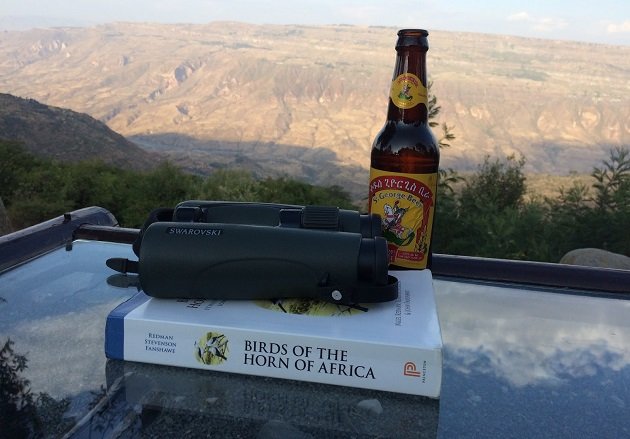
I watched some movie the other day, in which an artist, a real historical figure, says something how art is a… well, I didn’t write it down immediately and couldn’t find it googling later (assuming that the thought is as historical as the artist), but I recognized birding in those words. Simply replace “art” with “birding” and it made perfect sense.
So I started googling for “art is…” and, thinking of birding, it didn’t work out well. Then, as a former climber, I started googling about rock climbing and discovered that it is practically the same as birding! Here are 10 thoughts on climbing in which I replaced “mountains” and “climbing” with “birds” and “birding” and it makes perfect sense to me. What do you think?
- Birding is not a spectator sport. (1)
- It doesn’t have to be fun to be fun. (2)
- I’ve tried many sports, but birding is the best. The beauty of it is that no matter how good you get, you can always find a way to challenge yourself. (3)
- Birds have a way of dealing with overconfidence. (4)
- Nobody birds for scientific reasons. Science is used to raise money for the expeditions, but you really bird for the hell of it. (5)
- The best birder in the world is the one who’s having the most fun. (6)
- The best training was to go to the pub, drink 5 quarts of beer, and talk about birding. (7)
- The first question which you will ask and which I must try to answer is this; What is the use of accumulating one’s life list? and my answer must at once be, it is no use. There is not the slightest prospect of any gain whatsoever. (8)
- The true object, as always, is not simply to get the birds and check them off in a field guide — it is to challenge ourselves. (9)
- There is probably no pleasure equal to the pleasure of birding a faraway jungle; but it is a pleasure which is confined strictly to people who can find pleasure in it. (10)
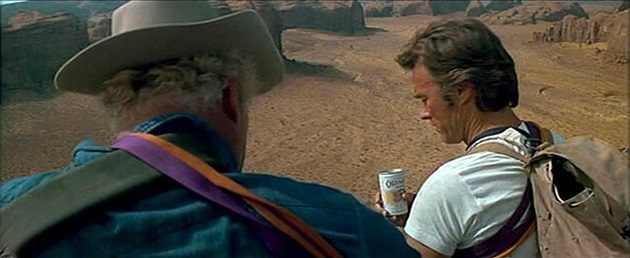 The Eiger Sanction (1975)
The Eiger Sanction (1975)
Here are the original quotes with their author’s names. I picked them up from the Internet without rechecking if the authorship is correct:
- Climbing is not a spectator sport. Mark Wellman
- It doesn’t have to be fun to be fun. Barry Blanchard
- I’ve tried many sports, but climbing is the best. The beauty of this sport is that no matter how good you get, you can always find a way to challenge yourself. Randy Leavitt
- Mountains have a way of dealing with overconfidence. Hermann Buhl
- Nobody climbs mountains for scientific reasons. Science is used to raise money for the expeditions, but you really climb for the hell of it. Edmund Hillary
- The best climber in the world is the one who’s having the most fun. Alex Lowe
- The best training was to go to the pub, drink 5 quarts of beer, and talk about climbing. Ron Fawcett
- The first question which you will ask and which I must try to answer is this; What is the use of climbing Mount Everest? and my answer must at once be, it is no use. There is not the slightest prospect of any gain whatsoever. George Leigh Mallory
- The true object, as always, is not simply to get up things and check them off in our guidebook — it is to challenge ourselves. Doug Robinson
- There is probably no pleasure equal to the pleasure of climbing a dangerous Alp; but it is a pleasure which is confined strictly to people who can find pleasure in it. Mark Twain
I told you, they were all about climbing, yet, they describe birding equally well. Climbing, birding, it is all the same thing.
I found one more saying that made sense to me, by Reinhold Messner, the Kenn Kaufman of mountain climbing: “Bolts are the murder of the impossible.” Now, in rock climbing, a bolt is a permanent anchor drilled into the rock as a form of protection (most bolts are self-anchoring expansion bolts).
Messner comes from a generation that mostly used pitons hammered into natural cracks by the lead climber and afterwards hammered out by the second climber, leaving the rock face as pure as it was found. Bolts practically took the risk of a serious injury out of climbing. And, without risk, they forever changed the set of climber’s mind. Without the risk, you can achieve just about anything. But the question remains, have you really achieved it then?
It is an overreliance on technology. What would be the birding equivalent of a bolt? Playback. Some birds are not meant to be found, they remain the reason to come back again, to keep on birding, to keep on… Playback is the murder of the impossible.
Cover photo by Ben Crampton, a.k.a. The Diplobirder, birding Ethiopia where legends are born






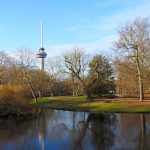

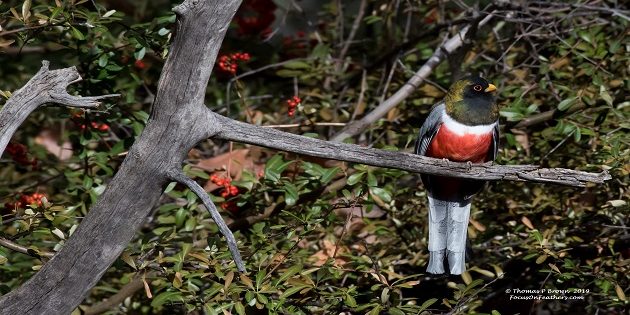
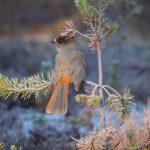
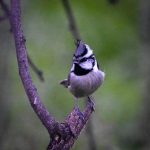
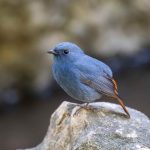
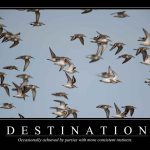
Top photo is from the Ethio-German hotel, isn’t ir… wish I were there again… nice article, thanks
Most likely yes, it’s my friend’s photo from Ethiopia, I don’t really know the place
Interesting analogy that works really well. Mmmmm….. The bolt for birding ? For me maybe it’s digital photography. It has taken some of the skill and challenge of birding away and I wonder if some bird photographers really know how to be a birder. When you’re looking down the lens of a camera are you looking to get the next best shot to take home to check in a field guide or ask your mates for their opinion. Or are you really looking at the bird ?
When you look through a pair of binoculars or just use your naked eye it’s just a whole new ball game. You are immediately committing to memory important points you know you will need to identify that bird. The colour of particular feather groups, the length of its bill etc. etc. etc. and of equal importance it’s ‘jizz’ that unique character of a particular species which is so subtle sometimes that you only come to know it after long and repeated observation and not after you shoot at 2 hundredths of a secound at 5.6 down the lense of a camera. Birding is a real field craft and photography ? Well that’s photography.
I probably had similar thoughts of bird photographers when I saw the first FB photos with the words “ID please”. What annoyed me is not that someone doesn’t know his birds, no one started with such knowledge, but the lack of any attempt to ID it themselves.
Then I got to know some of them who turned out to be great, but they were actually learning their birds in the process.
One photographer recently annoyed me with an attitude “I only take photos, I don’t have the time to study the field guide”, announcing that he doesn’t intend to learn at all. He tends to chase birds too closely, yet, he made photos of some good birds that others missed, so thanks to him, we know they were here…
Talking to one South African ornithologist and a field guide author, I learned that he sometime birds his local patch even without binoculars, only with his camera on a monopod, not even a tripod, so, cameras and bird photography are here to stay and it is up to us to adapt to the new scene… or to go the way of the dinosaurs.
I agree with the commenters who suggested digital photography.
It is very easy to get a picture to enable an identification later. Perhaps that is one way that birding and climbing differ. You can hardly complete the last few feet of a cliff climb whilst back in the comfort of the hotel bar.
But if you don’t end it up with a beer in a nearest bar, it somehow stays open, unfinished…
I have never made any claims to be an incredible birder, and it is the camera (and a Foresters Tern) that got me started birding. But now over 40 years later, I own over 50 bird guides, all of which I have read cover to cover and dog-eared with my efforts to learn my subjects. In the end, I have to go with #9 on your list. It is always a challenge, albiet a self inposed one, to find a bird, know what it is, learn its habits and habitat, and to get as great a photograph as possible. I am not sure how my method compares to climbing, but none the less, this is a great story you have posted.
My wife recently did a research into adventure tourist (including birders) relation towards education and one result I found particularly interesting.
The question was how experienced they see themselves and, expectedly, those who do it for a longer period said “mostly experienced” (I know I chose this, and the, now retired, former Natural History Museum director chose that answer, too).
Yet, some 8% of the participants saw themselves as “completely experienced”. Completely? You know everything there is to know?? Nothing left to learn?
I always wondered what the percentage of simpletons is. Now I know that.
“Completely Experienced” wow, that sucks. What do you have left to live for? I hope to learn something new everyday, even if it is not bird related.
Dragan, I agree there are good and bad bird photographers/birders. And yes the worst are particularly selfish and approach birds to satisfy their own desire to get an ever closer shot. I’ve seen crowds of photographers pointing huge lenses at waxwings while standing just meters away. It was the middle of a freezing winter and they had no idea of the pressure these birds were under to find food after migrating thousands of miles. I also agree photography has changed birding and those who adapt survive.